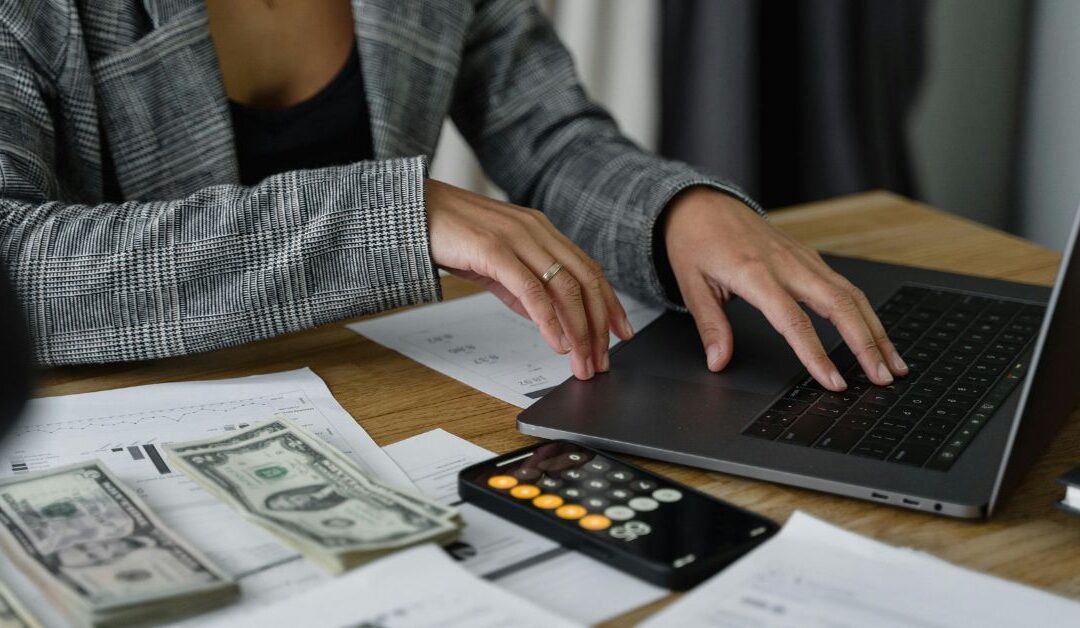This is the ultimate guide on how to calculate the ROI on a rental property.
You’ll learn:
- What ROI is
- The formula for calculating your ROI
- An example of what my own numbers look like
- And much more!
Want to find out more about making more money with rental properties? Read on.
What is ROI?
ROI, or return on investment, tells you how profitable your rental property is. It’s a percentage ratio that shows you how much profit you made on your originally invested funds.
And you need to know your ROI to understand if you’re making positive cash flow and your investment is profitable.
While I today have a portfolio that generates multiple six figures, I started out making a lot of mistakes.
One of them was not taking into account things like repairs on my property – which led me to have a negative cash flow for 2 years. Something I could easily have avoided if I had been more careful when making my calculations.
You calculate ROI by dividing the net income from the property by the total investment in the property.
Net income = the gross rental income minus expenses (mortgage, taxes, insurance, maintenance, vacancies, and so on)
Total investment = the initial purchase price of the property, closing costs, and renovations or improvements
In the next sections, you’ll learn how to account for these variables, so you get an accurate ROI.
What is the ROI formula for rental properties?
Here’s the formula for calculating the ROI on your rental property:
ROI = (rental property income – expenses)/cost of investment x 100
Let’s break it down.
First, your profit. To calculate your net profit, you need to figure out your annual rental income minus your expenses. The expenses are the hardest part to track but the most important.
If your expense numbers are off, you’ll get an inaccurate ROI.
So what counts as expenses on your rental property? Common expenses include:
- Mortgage payment (but we’ll talk about calculating ROI with a mortgage in a later section)
- Taxes
- Home insurance
- Maintenance costs and repairs
- Property management fees
- Vacancies (missed income when the property is empty
- Utilities (if not paid by tenant)
- HOA fees (if applicable)
- Marketing costs
- Legal fees
- Landscaping
- Pest control
Subtract your expenses from your annual rental income to get the net profit. If this is a property you haven’t bought yet, use your best estimate for these expenses.
Now calculate the total cost of your investment. How much money did you invest in the property when you bought it?
Here’s an example:
Say you bought a property for $100,000 with $10,000 in closing and renovation costs. And $5,000 in expenses.
You earned $24,000 in annual gross rental income.
So the calculation would be:
ROI = (24,000-5,000)/110,000 x 100 = 17.27%
Your ROI was 17.27%.
Of course, these numbers are super simplified, but you get the picture.
What is a good ROI on rental properties?
In general, a good ROI on rental properties is between 5-10% which compares to the average investment return from stocks.
However, there are plenty of factors that affect ROI. A higher ROI often also comes with higher risks, so it’s important to compare the reward with the risks.
- Location: Location might be the most important aspect of ROI in real estate because it affects everything else. The location of your property impacts the purchase price, rental income, marketing expenses, vacancy rates, and so on.
- Property type: Single-family homes tend to have a higher ROI than apartments or condos.
- Condition of the property: Properties that are well-maintained tend to attract higher rents.
- Management: Management expenses can have a big impact on your property ROI.
- Purchase price: If you get a good deal on your property, you can get a better return on investment.
- Rental income: How much can you expect to earn on that property? For example, if you can rent out your property by the room (as is the case with student housing properties) you can typically make a higher return on investment.
- Interest rates: Interest rates can impact your ROI.
Want to see what the ROI can look like on real estate investments? I share my numbers here:
How to calculate ROI on your rental property
So let’s talk about how to calculate the ROI on a cash purchase. In the next section, we’ll look at mortgage payments, but in case you can pay for your property in cash, this is the calculation you’d use.
Let’s say you’ve had your property for a year.
You can use the following formula to figure out how your investment is going:
ROI = annual return/total cash investment
Here’s an example:
You’ve bought a property with $100,000 cash. After repairs and closing costs, you spend another $20,000. So your total cash investment is $120,000.
Fast forward to 12 months later.
You have one full year of expenses and rental income. Your expenses total $3,000. Your rental income was $1,000 a month.
So your annual return was $12,000 – $3,000 = $9,000
Using our formula, we can calculate the ROI:
9,000/120,000
0.075 x 100
ROI = 7.5%
Now, let’s look at ROI on financed properties.
How to calculate ROI on your rental property with a mortgage
To calculate the ROI on financed transactions, you have to include your mortgage payments in your expenses.
So let’s take the same $120,000 property.
If you put down a 20% down payment, your upfront cost is $24,000.
For simplicity, your closing costs and renovations are $16,000 (closing costs for mortgage properties tend to be higher).
So your total cash invested is $40,000.
Your mortgage repayments on $96,000 with a 6% fixed rate for 30 years would be $575.57 per month. After 12 months, that’s about $6,907.
Your other expenses total $3,000 for the year.
The monthly rental income is $1,000. That’s $12,000 a year.
Now let’s calculate the ROI.
(12,000-9,907)/40,000
2,093/40,000
0.052325 x 100
ROI = 5.2%
So those are the basic return on investment formulas for rental properties.
Next, we’ll look at other calculations you can use.
Other ways to calculate ROI
We’ve talked about the simplest ways to calculate your ROI on rental properties. But there are other metrics you can use to review the success of your real estate investments.
Annual cash flow
Annual cash flow is simply your cash income minus your operating expenses over 12 months. It includes vacancy as part of your expenses as well as mortgage repayments, taxes, and so on. If you have cash left over, your cash flow is positive.
To calculate annual cash flow = Rental income – Expenses
Gross rent multiplier
GRM is a metric that compares the price of a property to its annual gross rental income. A lower GRM indicates that rental income surpasses the cost of the property and vice versa.
To calculate gross rent multiplier (GRM) = Purchase price/Annual gross rental income
Cash-on-cash return
Cash-on-cash return is the amount of cash flow, before tax, compared to the amount of cash invested in the property. It shows you how profitable the property is relative to how much you put in and helps you project your earnings in the future.
To calculate cash-on-cash return = (Annual pre-tax cash flow/Total cash investment) x 100
Net operating income
Net operating income is the total amount of income you can expect to make after deducting the operating expenses. This is an important metric for accurate ROI calculations and future projections.
To calculate net operating income = Total revenue – Operating expenses
Total revenue can include laundry facilities or parking fees.
Cap rate
The cap rate or capitalization rate shows you as an investor how much you could make or lose if you choose to buy a property. This is more of an estimate than factual numbers so you shouldn’t rely on just the cap rate to make a decision.
To calculate cap rate = (Net operating income/Current market value) x 100
Now you know how to calculate ROI.
But why is ROI so important? Let’s talk about it.
Why is ROI important for rental properties?
Calculating your ROI helps you make an informed decision on buying a property or keeping a property.
Why? Well, you’re taking an honest look at the costs and expenses to see if you’ll actually be profitable.
Because real estate can be the gateway to financial freedom. I personally used this strategy and became a millionaire at 28. The best part is that I’ve been able to leave my pharmacy job and turn my side hustle into a full-time job. And today, I’m a full-time real estate investor.
Here’s more on my story:
In terms of what type of ROI you can typically make, the answer is that it depends.
For example, many of my real estate investing students have successfully built their first rental to $1,500-$2,500 in monthly cash flow or $18,000-$30,000 per year with healthy ROI.
Here’s Kali’s story. She acquired a house with $4,200 monthly cash flow:
But if you don’t take the time to accurately calculate the potential return on your investment, you could end up:
- Overspending on the property price: You could end up with a bad deal on a property. You need to think about the expected expenses and repair costs to see if the property is worth it.
- Underpricing your rent: Rent price is dictated by the location to some extent, but you can also end up pricing your rent too low if you don’t do the proper research.
- Negotiating a bad mortgage: As we saw, your mortgage repayments make a huge difference to your ROI. If you’re not careful, you could get locked into a mortgage that gives you a poor return unless you inflate the rent.
- Not recouping your investment when you sell: If you want to sell your real estate property down the line, it’s important to do this calculation to see how much you should sell the property for. Keeping your ROI high while you own the property increases the chances of making a good return when you sell.
These are just a few of the worst-case scenarios that could happen if you skip calculating your ROI. So I recommend getting familiar with these formulas so you can make sure you buy and invest in the right property.
And if you want to learn more about strategies to improve your ROI, take a look at my guide on student housing investments.
Next steps
So now you know how to calculate the ROI on a rental property.
You can use this calculation to figure out if it’s worth buying a property you are looking at as well as checking that your ongoing investments are still worth it. Want to learn more about investing in rental property?
I help new real estate investors identify the best property for a great ROI as well as negotiate a good deal, find tenants, and market your first property.
Looking for help to get you started? You can check out my real estate mentorship here.
Read more:
Student Housing Investment Returns: The Ultimate Guide
Are Rental Properties a Good Investment? Ultimate Guide
Is it a Good Time to Buy Rental Property? Where & Why


